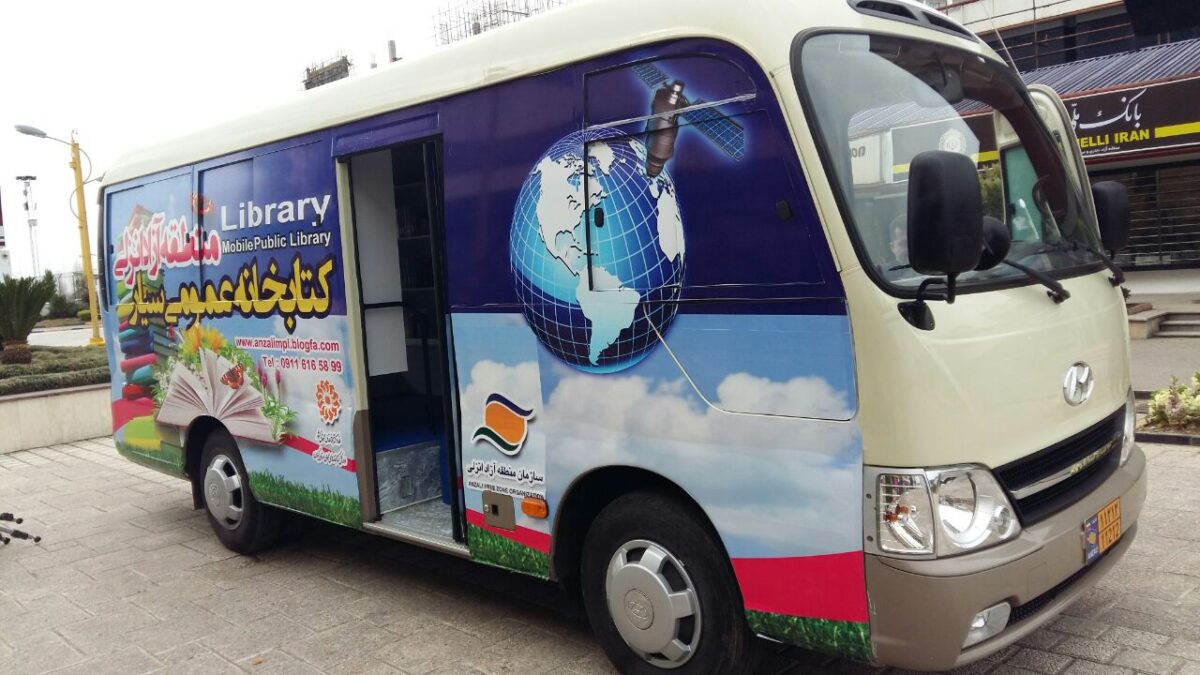Mohammad Saffari has been in charge of one of the mobile libraries of Iran’s Center for Intellectual Development of Children and Young Adults for nine years now. He provides children living in the rural areas of the town of Tabas in central Iran with different kinds of books.
The following is highlights of his Farsi interview with the Mehr News Agency:
Mr. Saffari keeps track of every single book he has and every single member of his library. He says there are 1,470 members exactly. He is 35 years old, holding a BA degree in Educational Sciences. He is, in fact, a cultural messenger promoting book reading in villages in Tabas. He spends days with underprivileged children and offers services to children in 19 villages.
His library is a minibus with around 7,000 volumes of books. At first, the minibus just looks like a mobile library. But when you talk to the manager of the library, you realize that their activities go beyond just distributing books among children. Among the programs he does with children are reading poems, reciting stories and painting.
“What is interesting is that after we recite a story to the kids, they go after its book, which further promotes reading among them,” says Saffari.
A sad thing Mr. Saffari told us was that the population is dwindling in some villages. He says there have been villages some of whose residents used to be members of the library, but they have no members any more due to a drop in the number of the villagers.
He says the children and their families always welcome him.
“Our audience constitutes children between 6 to 16 years of age, most of them primary school students. But as they grow older, they begin working in the field. … I try to call them once a week, especially in summer, and I receive a very warm welcome, so much so that they want me to go and see them every day.”
He says children living in villages show more interest in reading books than their peers in cities.
“The big difference that these kids have with kids living in cities is that kids in cities busy themselves with mobile phones and tablets, but you rarely see a kid in Tabas villages with a mobile phone in his or her hand,” Saffari says.
He also says the more remote the village is, the more interest its kids show in reading books. He says it is the children’s interest that motivates him and makes him love his job despite all its difficulties.
